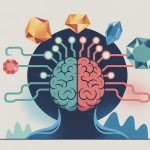
Artificial Intelligence Skills: The Key Competencies You Need to Master
Artificial Intelligence (AI) is revolutionizing industries and reshaping the global workforce.
To thrive in this dynamic field, aspiring AI professionals must develop a diverse skill set that combines technical expertise, critical thinking, and creative problem-solving.
Below, we explore the essential skills needed to succeed in the world of AI.
1. Programming and Software Development
AI is built on a foundation of programming and software development.
Proficiency in these areas allows AI professionals to create algorithms, develop models, and build AI-powered applications.
Key Programming Languages:
- Python: Widely used in AI for libraries like TensorFlow, PyTorch, and Scikit-learn.
- R: Ideal for statistical analysis and data visualization.
- Java, C++, and JavaScript: Often used for performance-critical applications or web-based AI tools.
How to Develop This Skill:
- Take online courses on Python and R.
- Work on projects that involve coding algorithms and building machine learning models.
2. Mathematics and Statistical Analysis
A strong foundation in mathematics and statistics is essential for understanding the algorithms that power AI.
Core Areas to Focus On:
- Linear Algebra: The backbone of machine learning, used for understanding vectors and matrices.
- Probability and Statistics: For data analysis, hypothesis testing, and model evaluation.
- Calculus: Critical for optimization and training AI models.
How to Develop This Skill:
- Practice with real-world datasets.
- Use tools like Excel, R, or Python for statistical calculations.
3. Machine Learning (ML) and Deep Learning
AI systems often rely on machine learning and deep learning to make predictions and decisions.
Core Concepts in ML:
- Supervised, unsupervised, and reinforcement learning.
- Neural networks and deep learning architectures (CNNs, RNNs).
- Natural language processing (NLP) for text and voice analysis.
Popular Tools and Frameworks:
- TensorFlow, PyTorch, and Keras for deep learning.
- Scikit-learn for classical machine learning models.
How to Develop This Skill:
- Build small projects, such as chatbots or recommendation systems.
- Enroll in ML-focused courses like those on Coursera or Udacity.
4. Data Analysis and Data Wrangling
AI systems thrive on clean, organized data. Skills in data analysis and preparation are critical for AI professionals.
Key Skills in Data Analysis:
- Cleaning and preprocessing raw data for model input.
- Exploratory data analysis (EDA) to uncover trends and insights.
- Using tools like Pandas, NumPy, and SQL for data manipulation.
How to Develop This Skill:
- Work on datasets from platforms like Kaggle or UCI Machine Learning Repository.
- Practice creating visualizations with Matplotlib or Seaborn.
5. Problem-Solving and Critical Thinking
AI is about solving complex problems with innovative solutions.
Critical thinking helps AI professionals evaluate models, optimize algorithms, and improve system performance.
How to Develop This Skill:
- Engage in competitive coding challenges.
- Study real-world AI applications and analyze their solutions.
6. Knowledge of AI Ethics
Understanding the ethical implications of AI is crucial to creating systems that are fair, transparent, and accountable.
Key Topics in AI Ethics:
- Bias in AI models and data.
- Privacy concerns and data protection.
- Ensuring transparency in AI decision-making.
How to Develop This Skill:
- Study case studies of AI bias and ethical issues.
- Learn about frameworks like GDPR and CCPA.
7. Domain Expertise
AI professionals often need domain-specific knowledge to tailor solutions for different industries.
Examples of Domain Knowledge:
- Healthcare: Understanding medical imaging or patient records for predictive models.
- Finance: Expertise in fraud detection or algorithmic trading.
- Retail: Knowledge of consumer behavior for recommendation engines.
How to Develop This Skill:
- Partner with domain experts or pursue interdisciplinary learning.
8. Communication and Visualization Skills
Explaining complex AI concepts and insights is as important as building models.
Strong communication skills are essential for collaboration and stakeholder engagement.
Key Tools for Visualization:
- Tableau and Power BI for creating dashboards.
- Python libraries like Matplotlib and Seaborn for graphs.
- d3.js for interactive visualizations.
How to Develop This Skill:
- Practice presenting AI solutions in layman’s terms.
- Create visualizations to communicate your findings effectively.
9. Cloud Computing and Big Data
AI systems often require the scalability and computational power of cloud platforms and big data technologies.
Key Cloud Platforms and Tools:
- AWS, Microsoft Azure, and Google Cloud for AI deployments.
- Hadoop and Spark for big data processing.
- Databricks for distributed computing.
How to Develop This Skill:
- Explore free tiers of cloud platforms.
- Learn to manage datasets using distributed systems.
10. Lifelong Learning and Adaptability
AI is a fast-evolving field. Staying updated with the latest tools, trends, and techniques is essential.
Ways to Stay Updated:
- Follow AI publications like OpenAI, DeepMind, and AI blogs.
- Participate in AI conferences and hackathons.
- Continuously explore new frameworks and programming tools.
Building expertise in artificial intelligence requires a combination of technical, analytical, and interpersonal skills.
By mastering the above skills and maintaining a mindset of lifelong learning, you’ll be well-equipped to contribute to the exciting and transformative field of AI.


